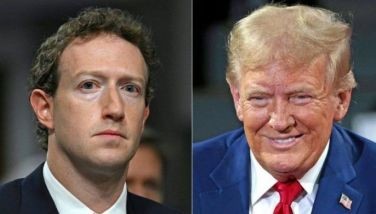Retail Trade Law lures more local traders than foreigners
May 28, 2002 | 12:00am
The Retail Trade Liberalization Law has prompted local businessmen to launch more aggressive investment programs with the drugstore industry gearing up for the entry of two pharmacy chains.
Luis J.L. Virata, chairman and CEO of CLSA Exchange Capital, Inc. cited the drugstore industry as an example where there are a number of well-managed but undercapitalized medium-sized chains.
Virata, an investment banker, has organized a venture company which has undertaken a corporate restructuring of two pharmacy chains based in Central Luzon and Metro Manila which together have over 40 outlets.
Virata’s company recently acquired Merced Drug and Manson Drug, which has at least 25 stores in Central Luzon. Under the plan, Manson will manage and operate Merced Drug.
On the other hand, Mercury Drug has grown into a network of more than 400 company-owned and franchised stores all over the country.
A study commissioned by Virata, himself, indicates that there are attractive opportunities for investors to fund emerging local retailers.
Though the Retail Trade Liberalization Law had failed to draw enough multinational retailers, the program has made local entrepreneurs shift market dynamics with more confidence.
The established retailers and real estate companies have made decisive moves to position their companies for a more bullish retail market once consumer spending recovers.
The SM Group has opened new malls in Davao and Pampanga, while Gokongwei’s Robinson’s has launched an aggressive retail diversification and multi-format store expansion plan.
Mercury Drug has maintained its control of the market with an expansion program of 30-40 new pharmacy-cum-convenience stores per year. It will have 500 stores by year’s end.
On the realty business, Ayala Land has redeveloped its 11-hectare Greenbelt property to add high-end retail space to the Glorietta Mall. Other projects include the Power Plant at Rockwell and SM’s Podium in Ortigas Center.
Across the archipelago, oil companies such as Shell, Caltex and Petron are also expanding their retail presence.
The emergence of more local traders in the retail sector more than make up for the seeming reluctance of multinational retailers to invest in the country.
Thus far, only the California-based PriceSmart has established operations in the Philippines with the launching of two warehouse stores under the company’s $100-million investment program.
Hutchinson Whampoa Ltd., the Hong Kong conglomerate, recently forged a partnership with SM Prime to set up the Asia-wide retail brand, Watson’s, in the local market.
Global retail giant WalMart is reportedly eyeing a retail venture with the Aboitiz Group, with the multinational company identified as the possible buyer of Uniwide.
Luis J.L. Virata, chairman and CEO of CLSA Exchange Capital, Inc. cited the drugstore industry as an example where there are a number of well-managed but undercapitalized medium-sized chains.
Virata, an investment banker, has organized a venture company which has undertaken a corporate restructuring of two pharmacy chains based in Central Luzon and Metro Manila which together have over 40 outlets.
Virata’s company recently acquired Merced Drug and Manson Drug, which has at least 25 stores in Central Luzon. Under the plan, Manson will manage and operate Merced Drug.
On the other hand, Mercury Drug has grown into a network of more than 400 company-owned and franchised stores all over the country.
A study commissioned by Virata, himself, indicates that there are attractive opportunities for investors to fund emerging local retailers.
Though the Retail Trade Liberalization Law had failed to draw enough multinational retailers, the program has made local entrepreneurs shift market dynamics with more confidence.
The established retailers and real estate companies have made decisive moves to position their companies for a more bullish retail market once consumer spending recovers.
The SM Group has opened new malls in Davao and Pampanga, while Gokongwei’s Robinson’s has launched an aggressive retail diversification and multi-format store expansion plan.
Mercury Drug has maintained its control of the market with an expansion program of 30-40 new pharmacy-cum-convenience stores per year. It will have 500 stores by year’s end.
On the realty business, Ayala Land has redeveloped its 11-hectare Greenbelt property to add high-end retail space to the Glorietta Mall. Other projects include the Power Plant at Rockwell and SM’s Podium in Ortigas Center.
Across the archipelago, oil companies such as Shell, Caltex and Petron are also expanding their retail presence.
The emergence of more local traders in the retail sector more than make up for the seeming reluctance of multinational retailers to invest in the country.
Thus far, only the California-based PriceSmart has established operations in the Philippines with the launching of two warehouse stores under the company’s $100-million investment program.
Hutchinson Whampoa Ltd., the Hong Kong conglomerate, recently forged a partnership with SM Prime to set up the Asia-wide retail brand, Watson’s, in the local market.
Global retail giant WalMart is reportedly eyeing a retail venture with the Aboitiz Group, with the multinational company identified as the possible buyer of Uniwide.
BrandSpace Articles
<
>
- Latest
- Trending
Trending
Latest
Trending
Latest
Recommended































